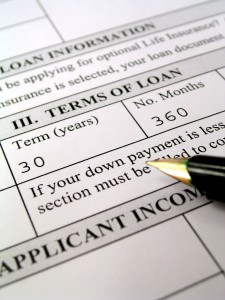 Many people want to know what is the easiest way to consolidate credit cards. You can save money if you consolidate your credit card debt by combining all outstanding card balances. Paying off credit card debt at a lower interest rate can help the borrower to pay down the outstanding balance sooner. By consolidating the debt represented by several credit cards into a single balance due, managing one monthly payment rather than several is an added benefit.
Many people want to know what is the easiest way to consolidate credit cards. You can save money if you consolidate your credit card debt by combining all outstanding card balances. Paying off credit card debt at a lower interest rate can help the borrower to pay down the outstanding balance sooner. By consolidating the debt represented by several credit cards into a single balance due, managing one monthly payment rather than several is an added benefit.
You can find and compare credit cards that allow you to transfer balances with the FREE credit card finder above!
Since paying off credit card debt is always positive to financial health and peace of mind, we’ll explore several easy methods. Each consumer’s credit history, financial resources, and strategy should be carefully considered.
Should I consolidate my existing credit card balances now?
Let’s say you have three credit cards in your wallet to manage credit card debt on. Each card has a debt balance of about $1,000, or $3,000 in outstanding total credit card debt. If you’re paying the average 14.4% on your cards—or up to 49.9% on some exorbitantly priced APR rate, reducing the interest rate on the outstanding balance is an easy way to save money.
According to author Paul A. Tucci in “The Handy Personal Finance Answer Book,” carrying two cards may be better than three for most people. Carrying a primary credit card, and a back-up card in case the first card doesn’t work, is suggested. The first and easiest course of action is to reduce three cards to two.
A third, fourth, or fifth credit card may create unnecessary financial temptation to spend and accumulate debt balances carried at higher interest rates.
A good credit history should make shopping for a new, low interest credit card quite easy:
- Shop for a credit card with an interest rate between 0% to 9.9% APR
- Look for a lower interest rate credit card with reward or points offers, e.g. cash back
Then, do a credit card balance transfer to the new card. Make sure to check out the transfer fee beforehand, however. Most credit card issuers charge a percentage of the amount transferred to the new card. Some cards offer a maximum transfer fee, regardless of the amount transferred.
What if I don’t have a good credit history?
Getting a new credit card with a lower interest rate can present a challenge for consumers with mediocre to bad credit. With less than perfect credit, readily liquid assets (e.g. an investment portfolio) pledged as collateral can help.
Investors in this scenario may not want to sell assets in the investment portfolio, because doing so triggers a gain or loss they don’t want to take. The bank considers the portfolio as security against default on the credit line or personal loan. Because the loan is secured by the amount of collateral, the bank may extend a lower interest rate. The risk of a secured loan is lower than that of an unsecured loan, according to the Federal Trade Commission (FTC).
 What about getting a cosigner if my own credit history isn’t good?
What about getting a cosigner if my own credit history isn’t good?
Asking someone with an excellent credit history and a high FICO credit score is one way to get a new, lower interest rate credit card or personal bank loan. The cosigner is guaranteeing your credit. If you default on interest or principal, the lender will pursue the cosigner to repay the money.
Creating and submitting a personal financial plan to your cosigner can help all parties involved. Realize that defaulting on a credit card or loan will affect the cosigner. Your relationship may be ruined by defaulting on your promise and intention to repay the loan, the FTC says.
Should I borrow funds from a 401(k) to consolidate credit card debts?
If you’ve accumulated money in a retirement plan, such as a 401(k), loaning yourself money at a low interest rate is possible. It’s your money.
However, borrowing money from the 401(k) plan can be a risky strategy:
- Funds withdrawn aren’t earning tax-deferred interest. Consider the investment impact of withdrawing the funds (e.g., breaking a long-term high interest rate instrument to liquidate).
- Funds that aren’t repaid to the plan subject the borrower to hefty premature withdrawal penalties.
- Don’t borrow 401(k) or other retirement plan funds if repaying the money is in question and you’re within 10 years of retirement.
SmartMoney advises against borrowing against your 401(k) if possible to avoid any risks. They suggest before going this route to consider any other possible financial resources you may have available that are not retirement related.
What about taking out a home equity loan to consolidate my credit card bills?
If you own a home, and your credit is good, taking out a loan against the equity in the home can be an inexpensive way to access funds to pay down higher cost credit card debt. Like borrowing against a retirement plan, accessing equity from your residence can be a risky financial strategy. The home, like the secured loan referenced above, collateralizes the loan. Defaulting on a primary or secondary home loan can mean losing the home to the lender.
Building a good credit history provides a range of options to consolidate credit card debt. Consolidating higher APR credit card balances into a single, lower APR credit card saves money. Choosing a less expensive, unsecured credit card is the easiest way to repay outstanding credit card debt carried at higher interest rates.
Getting the information you need to choose the best credit card deal is easy with the FREE credit card chaser!
Similar Articles:
- What Are the Best Ways to Use Your Credit Card?
- Should I consolidate my credit card debt?
- Where can I find out how to consolidate credit cards?
- What are credit card debt loans?
- Is it a good idea to take out loans for credit cards?
- Should You Pay Off Your Child’s Debts and Loans?
- Should I get a home equity loan to consolidate my credit card debt?








